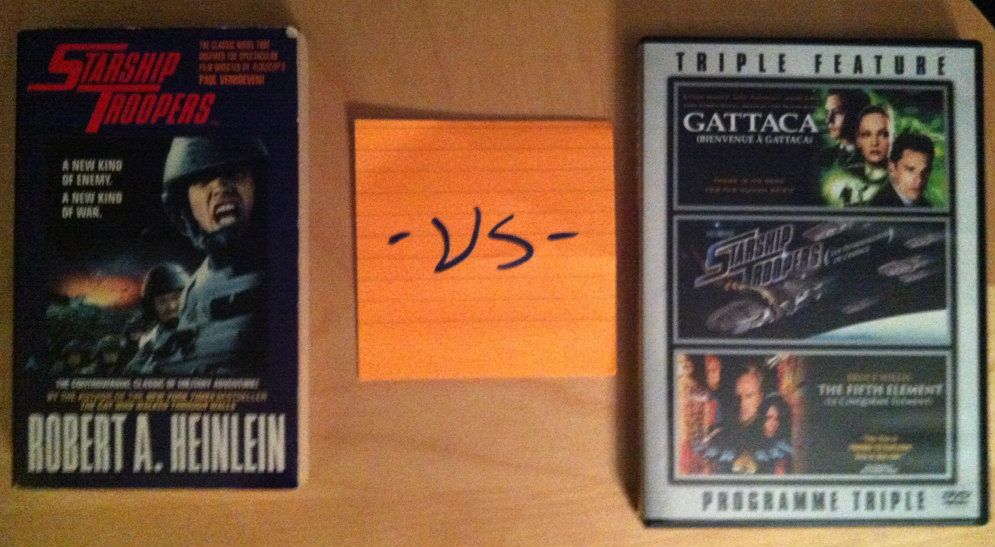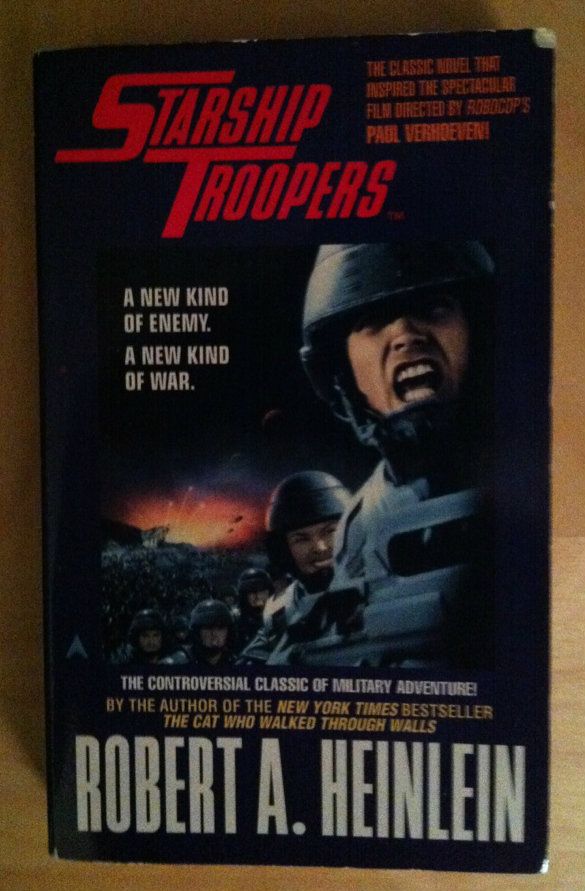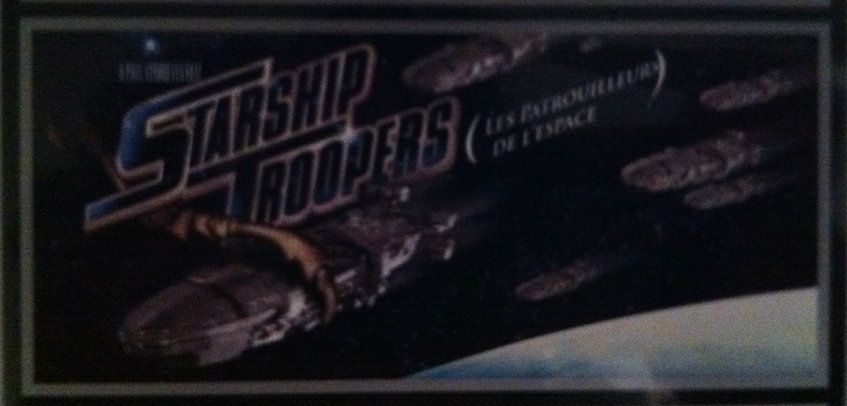Or a comparison between source and adaptation
One of the interesting consequences of having so many different flavours of media these days is that things have a tendency to be adapted between formats. Comics become movies which are adapted to novels which inspire TV shows which spin into new comics. Each media transition often involves different people with different objectives, goals, and creative tastes. Each flavour of media has its own individual strengths and weaknesses. While the core story can never really be completely divorced from its creators or media, I think it's a fun game to compare different versions of the same story and see which I like best.
Today I will discuss and compare the classic Robert A Heinlein novel Starship Troopers with the Paul Verhoeven action film adaptation Starship Troopers.
There will be many *SPOILERS* in this article.
My analysis after the cut:
The source: Starship Troopers, by Robert A Heinlien
Robert A Heinlein's Starship Troopers is a novel about an idealised militaristic society. The book's central premise is that society would be better run if citizenship (and suffrage) had to be earned through some sort of federal service instead of universally granted. The logic being that people who have completed a tenure of some form of federal service (military, navy, research, whatever) have proved that they are able to place communal good before individual good and therefore are better able to make responsible decisions and vote beyond their self interest. Starship Troopers is a philosophic treaties built to illustrate this point.
The novel is structured around the story of Johnnie Rico, a rich kid from Buenos Aires who decides to take a tour of federal service to get his citizenship largely out of peer pressure from his friends. He gets placed in the mobile infantry, a future infantry augmented by robotic combat suits (think human shaped tanks with jump jets) and is thrust into the disciplined and character building life of a Starship Trooper. The novel then follows his extremely rigorous training and gradual ascension through the ranks of the service all the while teaching us about his society and its philosophies. Also humanity is at war with an alien race of bugs, although this is very much secondary to the novel's ideas about society and an idealised military.
Starship Troopers is overall a serious book constructed to convince its audience that aspects of a military lifestyle should be adopted by society as a whole. As problematic as its proposed idealized junta government is, the novel makes some pretty compelling arguments to back up its thesis. If nothing else, Starship Troopers is an interesting idea and a worthwhile read.
The adaptation: Starship Troopers the film, directed by Paul Verhoeven
Starship Troopers the film is Paul Verhoeven's satire of the military and fascism. The film takes the overall structure of the novel: a future society with a quasi-junta government fights a war with intelligent alien bugs as viewed through the eyes of mobile infantry grunt Johnnie Rico (Casper Van Dien), and completely subverts it. Gone is the perfect society of earned citizenship and the idealised soldier of immaculate training, learning, and discipline who pilots a futuristic killing machine. Instead we see an apparently fascist government run by incompetent generals and soldiers (co-ed for the purposes of some sexy cheesecake) who goof around , drink beer in the field, and fornicate with one another, and get bloodily slaughtered while wearing ineffectual body armour by giant bugs. This is a film built to teach us the exact opposite of the novel: war is horrific and any attempts to portray it as moral are lies worthy of only contempt and parody.
Starship Troopers the movie is also fun as hell. The entire film, from its blatant overacting, random nudity, absurd lack of discipline, gratuitous violence, and B-movie infused alien bug villains, is just tremendously goofy in a delightfully so-bad-its-good way. This is easily one of my favourite movies to watch with friends.
(It's also worth noting that this movie gave us the Starship Troopers armour which has subsequently gotten around; appearing in such shows as Firefly and Power Rangers: Lost Galaxy)
A perfect illustration of how Starship Troopers the movie differs from Starship Troopers the book can be seen in a single scene. In Starship Troopers the novel, one of the cadets questions the usefulness of learning to use throwing knives in training when modern weapons are available. What follows is a discussion about teaching soldiers to become dangerous in any situation and about war as a mechanism for controlled violence to satisfy objectives. In Starship Troopers the film, one of the cadets questions learning knife throwing as the enemy "just has to push a button". His drill instructor tells him to put his hand on a wall, and promptly throws a knife through his hand pinning it to the wall before announcing "The enemy cannot push a button if you disable his hand."
I can say, without any cynicism that I LOVE this movie.
The Verdict: read Starship Troopers AND watch Starship Troopers
These are two very smart pieces of Sci-fi culture. Starship Troopers the novel is an entertaining meditation on the role of military discipline in society and the benefits of putting terms on suffrage. It is a classic and landmark piece of Science Ficition literature and is well worth reading. Starship Troopers the film is an over the top lampooning of the military life and fascism built into an action film. It's a ridiculous movie that is fun and crazy, but still very very smart. I think it's particularly interesting how both Starship Troopers use the same narrative structure to thematically argue contrasting viewpoints of the same issue. It's well worth checking out both since they are both very entertaining and since they are two viewpoints of the same discussion.



No comments:
Post a Comment